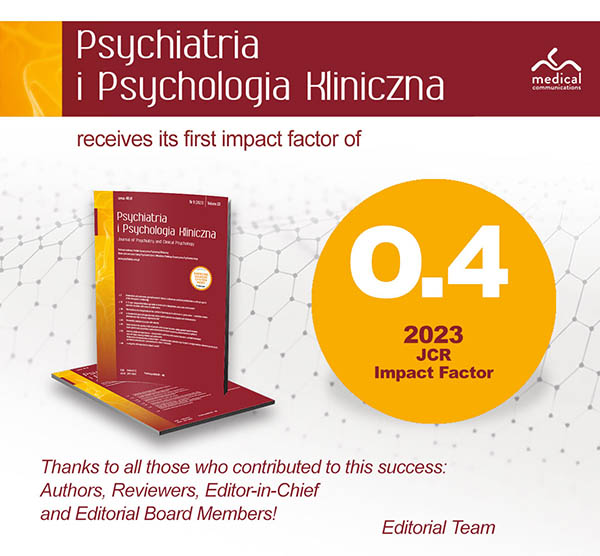Financialization may affect the therapeutic relationship in psychotherapy
 Affiliacja i adres do korespondencji
Affiliacja i adres do korespondencjiBackground: The therapeutic relationship is one of the most important and independent predictors in psychotherapy. Therapeutic relationships take place in a social environment, which shapes the mentality of therapists. One of the important aspects of this environment is financialization, which is considered to be the most significant socioeconomic phenomenon characteristic of capitalism. The aim of this paper is to discuss the effect of financialization on the attitudes of psychotherapists and on the quality of care they provide. Discussion: The paper presents a theoretical analysis of the relationship between the primary constituents of the therapeutic relationship (i.e. trust, realness, individuality of approach, honesty, truth, ethics, the good of the patient) and the phenomena characteristic of the process of financialization (such as replacement of relationship for transaction, distrust, advertisement, statistics, profitability, acceptance of a lie, relativism, consumptionism, perception of own benefits). Summary: Financialization can change the therapeutic relationship through indiscriminate introjection of financialization by the therapist. The primary cognitive and behavioural effect of this process is a shift in the proportions between the foundations of therapeutic relationship towards the foundations of financialization (as defined in this article). To the best of our knowledge, this is the first article presenting the correlation between financialization and psychotherapy.















